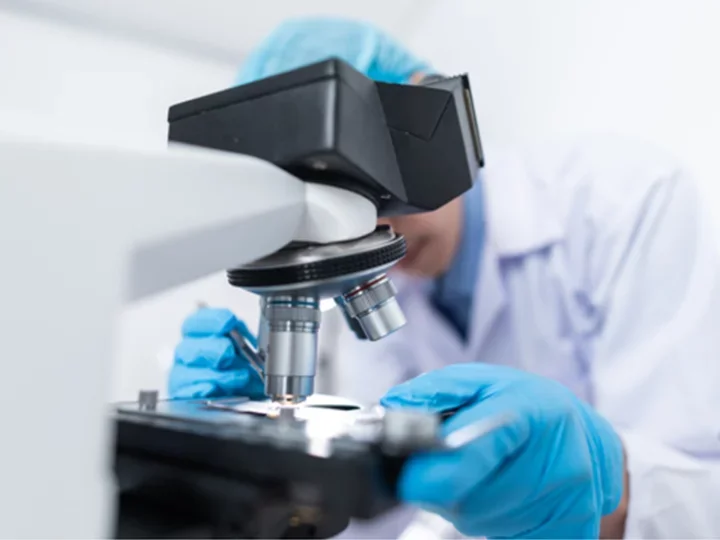Postdoctoral
Fostering Excellence
Postdoctoral cancer training programs are advanced research and professional development opportunities for individuals who have already earned a PhD or equivalent degree. These programs offer the opportunity for individuals to further specialize in the field of cancer research and treatment by conducting cutting-edge research under the guidance of experienced mentors. Postdoctoral cancer training programs provide an environment that fosters both scientific discovery and professional growth. The goal of these programs is to produce highly trained and independent cancer researchers who can make significant contributions to the field and go on to leadership positions. Participants in postdoctoral cancer training programs typically work on ongoing research projects, publish their findings in peer-reviewed journals, and present their work at conferences and other scientific meetings.
Graduate Programs in Bioscience
The Graduate Programs in Bioscience hosts and co-hosts several programs and workshops throughout the Academic Year for Graduate Students.
JCCC Fellowship Program
The JCCC Fellowship Program provides research funding to Postdoctoral Scholars/Fellows from all areas of cancer research, including basic, translational, and clinical and population science. The purpose of this program is to provide funding support and guidance to fellows so they can use it as a tool towards developing and submitting an NIH F-grant application.
UCLA Broad Stem Cell Research Center
The UCLA Broad Stem Cell Research Center offers postdoctoral students hands-on experience in the labs of some of the world’s top stem cell researchers and serves as a fundamental pathway for education and career development that reflects the center's mission: curing disease with laboratory research that translates to patient therapies.
UCLA Clinical Translational Science Institute (CTSI)
The UCLA Clinical Translational Science Institute (CTSI) fellows receive mentored training to ensure the translational nature of their dissertation projects. The goal of the fellowship is to provide pre-doctoral fellows with the investigative skills to create new knowledge about health services.
CSUN-UCLA Stem Cell Scientist Training Program
The CSUN-UCLA Stem Cell Scientist Training Program funds full-time immersion internships, allowing CSUN students to conduct independent research under the guidance of esteemed UCLA Broad Stem Cell Research Center faculty.
UCLA Graduate Writing Center NIH F Workshops
UCLA Graduate Writing Center NIH F Workshops covers the application process and required components of an NIH NRSA application. We discuss preparation, documents required, and writing strategies for the F31, but the F30 and F32 are very similar. We will also address how to find appropriate materials/resources for a complete application.
UCLA CTSI KL2 Award Program
The UCLA CTSI KL2 Award Program develops leaders in clinical research. Scholars are trained to design and oversee research in multidisciplinary team settings, skills critical to a successful career in translational science and the overall mission of the NIH.
UCLA F32 Workgroup
The UCLA F32 Workgroup offers support to help postdocs develop the 15 documents and numerous forms required. It includes guidance and advice from experienced faculty and prior F32 awardees, peer support in editing documents, and a timeline of assignments and tasks to stay accountable, finish on time and with top-quality documents. Faculty reviewers are asked to give feedback on the Specific Aims document
PCORT in Urologic &Gynecologic Cancers
This a T32 mentored training program that prepares outstanding postdoctoral scholars for research careers focused on scientific innovations that improve the design, delivery, and outcomes of urologic and/or gynecologic cancer care at the individual, population, and health care system levels.
NIH T32 Training Grant
The T32 grant funds the career development and mentored research of GI fellows/MD/PhD trainees in related GI fields (pediatric GI, GI surgery, GI pathology, physiology, and nutrition) in basic, translational, clinical, and outcomes-health services research. Six training slots per year are funded by the NIH.
Tumor Cell Biology Training Program
The overarching goal of the Tumor Cell Biology Training Program (TCB-TP) is to equip the next generation of cancer biologists and clinician scientists with the tools essential for innovative research.
UCLA Pre-Doctoral and Postdoctoral Program in Molecular Generic Epidemiology
The program provides training in all aspects of tumor immunology research. We propose to continue supporting a total of nine trainees (3 predoctoral, 6 postdoctoral) in a highly structured research training environment under the supervision of experienced and highly productive faculty mentors.
UCLA Pre-Doctoral and Postdoctoral Program in Molecular Generic Epidemiology
JCCC Basic Science Trainee Work-in-Progress
The UCLA Jonsson Comprehensive Cancer Center Office of Cancer Training & Education is excited to announce the JCCC Basic Science Trainee Work-in-Progress in-person program on September 30. This forum is for trainees studying cancer to present their research (basic science) in progress, identify key collaborators, and receive helpful feedback from peers on their unpublished data.
